#Thomas Fairfax
Text
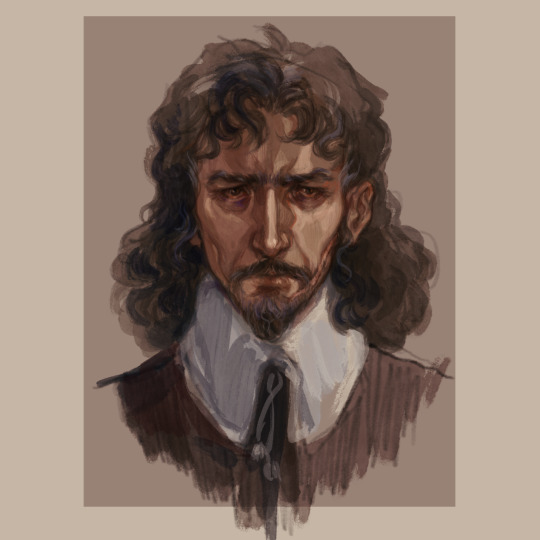
fairfax is 412 today! :D like to wish him a HAPPY BIRTHDAY reblog to wish him a HAPPY BIRTHDAY
[id: a digital portrait in a painterly style of a man with long dark hair, a moustache, and a small beard. he is wearing a black doublet and a white falling band, and has a scar across one side of his face. end id.]
bonus:
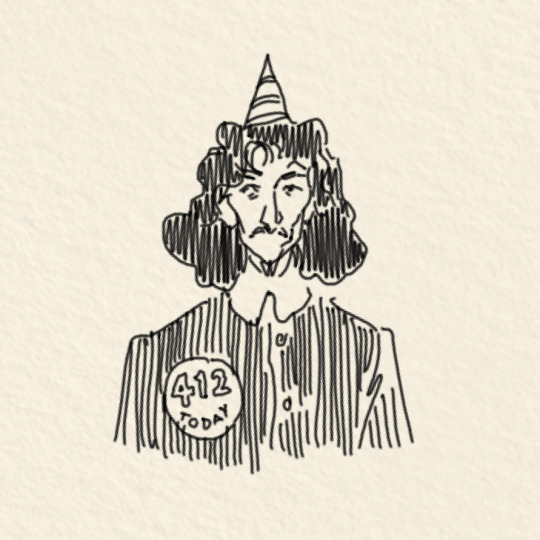
[id: a very simple digital drawing of the same man wearing a party hat and a badge which reads '412 today'. end id.]
#thomas fairfax#artwork#BIRTHDAY BOY!!!!!!!!!!!!!!!!! :D :D :D#i did many celebratory things today. i hope he had a nice day too#sorry i havent been around much once again my friends term has started again and i am very busy#i hope you are all well though :-) and a happy new year! since i dont think i ever said it at the time#kiss you all on head. look at thomas#fairfax
96 notes
·
View notes
Text
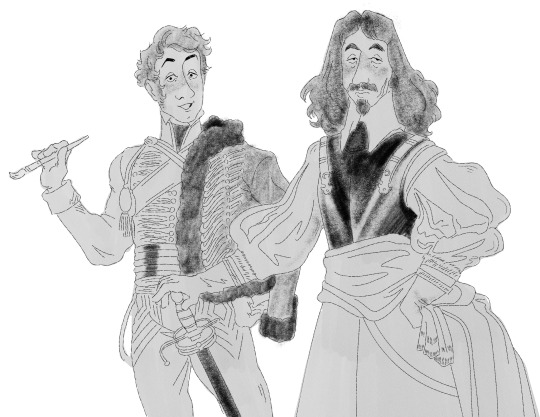
Requests 2/10
Louis-Francois Lejeune @kaxenart
Thomas Fairfax aka Lord Fairfax @ceescendo
62 notes
·
View notes
Text
Allllrighty another dream. All I remember is some weird school event happening and I didn't want to participate so I just hung out in the bathroom but I was transported to some other universe where Oliver Cromwell, Thomas Fairfax, and folk like them were alive in the modern(?) day. Then I got infected with some random disease that apparently had a 50% chance of survival and just chilled in a bunch of bushes watching Cromwell and the others go through AU-type shit. Turns out I was never there and it was all just a fanfic on wattpad/tumblr (by someone I'm pretty sure doesn't exist) and I had a great time scrolling through the art of them. They made Cromwell and Fairfax so cute omg and I'm pretty sure they were shipped (ME TOO ME TOO)
They looked something like this:

#man i might keep these designs they so cute#although fairfax is missing his facial hair noo#they're gay and cromwell doesn't want to admit it#puritan ass#unanchored dreams#<- gonna start tagging these with this#oliver cromwell#thomas fairfax
7 notes
·
View notes
Text
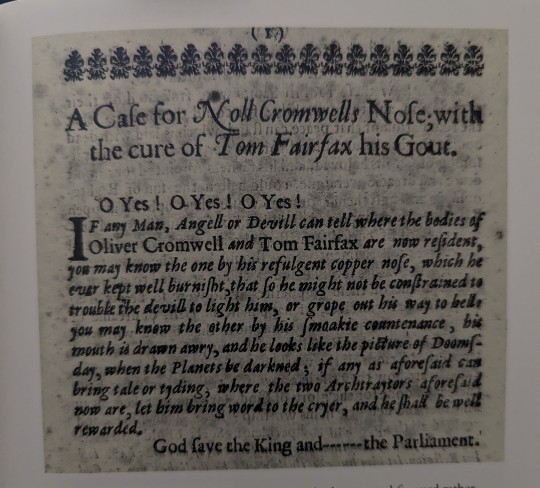
Losing my mind at the way this is phrased. "o yes o yes o yes!"
9 notes
·
View notes
Text
The New Model Army Defiant: ‘What were the lords of England but William the Conqueror’s colonels or the barons but his majors?’
Cromwell and Fairfax Choose Sides

The Farmer Who Ruled England by Ron Embleton. Source: Look And Learn magazine #51 (5th January 1963).
BY THE SPRING of 1647, the split between the Presbyterian faction that dominated Parliament and the New Model Army had widened into a chasm. The Army was fundamentally opposed to Parliament’s intention to disband most of its units, save for an expeditionary force to be sent to Ireland, with its months of wage arrears unpaid and with no indemnity granted to soldiers for actions taken during the war. The Army was also suspicious at what it perceived as the marginalisation by the Presbyterians of its popular leading commanders, Sir Thomas Fairfax and Oliver Cromwell, and nervous at the apparent negotiations between Parliament and the King which they believed could see Charles re-established with full royal authority on his throne, with potentially dire consequences for those commoners who had raised arms against him. The Independents were therefore assuming more and more influence amongst the middle ranking officers and the ordinary soldiery, leading to an increased militancy, not just against a Parliamentary faction that the men believed sought to swindle them out of their due, but also against an aristocratic ruling order they saw being reimposed and which many had hoped the war had rid them of. This led to the soldiers to begin to elect so-called “Agitators” to represent their interests to Parliament. The Agitators were more akin to shop stewards than the term’s modern connotation of persuasive political radicals, and indeed one of the first actions of the new militancy was for the Army to go on strike in April 1647.
The strike manifested itself as a refusal to serve in Ireland without the soldiers’ back pay being met, legal indemnities for their actions during the fighting being issued and, significantly an insistence that the Irish expedition be led by Cromwell and Fairfax. The two commanders were in an invidious position: Fairfax remained Parliament’s commander-in-chief and Cromwell was a sitting MP. Both men privately sympathised with the strikers. Cromwell attempted to broker an agreement between Parliament and the Agitators, but the situation spiralled out of control when on 25th May, Parliament announced the disbanding of the New Model Army with the exception of the force to travel to Ireland. The Army’s response was to muster in Newmarket, a show of strength that took the Presbyterians aback who, apart from the Trained Bands in London, had no military forces of their own to deploy against what was beginning to look like an organised mutiny. The Agitators then issued their own demand that the eleven MPs who had signed the disbandment order should themselves be removed from the Commons.
This development led to Cromwell’s moment of truth. Instinctively, he was a social conservative, very wary of the radical elements of the Army, but equally he owed a debt of blood to the soldiery whom he had commanded, fought with and led to extraordinary victories. His ultimate decision was made easier by his enemies in Parliament who believed him to be, at best, tolerant of the radical Independents in the Army and at worst, their cynical manipulator. As the Presbyterians’ negotiations with Charles threatened to being Scottish troops back into England to take on the New Model Army, Cromwell resigned his Parliamentary seat and cast his lot in with the military. What followed was the most audacious move in an extraordinary career that would one day make Cromwell king of England in all but name. Following a shadowy and never proven meeting between Cromwell and his immediate officers over lunch at an inn in Drury Lane, on 2nd June, a relatively junior Agitator named George Joyce, a second lieutenant, or “Cornet” in the New Model Army cavalry, led a troop of 500 horse to Holdenby House.
Joyce was met with suspicion by the military force guarding the King at Holdenby and they refused his demands to release Charles into his custody. The enterprising Joyce then forced his way into the startled King’s bed chamber and insisted Charles accompany him to London. The King, sensing something was afoot, and having obtained assurances from Joyce he would not be harmed or compelled to do anything against his conscience, agreed. The Parliamentary guard, unwilling to take on a numerous force of New Model troopers stood down and Joyce took charge of the King. An intrigued, and quite possibly amused, Charles enquired by what authority Joyce was taking him into custody. Joyce, clearly discomfited by Charles’ persistence, obfuscated, and replied transferring the King to the care of the Army, was necessary to secure peace in the Kingdoms. When Charles continued, asking Joyce “by what commission you have” to take his action, the exasperated officer turned and indicated his mounted soldiers. “By this commission, sir,” he replied. The King acknowledged the new reality under which his realm was now ruled. “It is as fair a commission and as well written as I have seen a commission written in my life.” he allegedly remarked. On 7th June, Joyce handed Charles into the charge of Fairfax and Cromwell. The rebellious New Model Army not only now had the unequivocal support of its much loved wartime commanders, it had the King as well.
Cromwell, Fairfax and the King all now proceeded to Newmarket where the Army remained under arms. Cromwell encouraged the formation of an Army Council to, in effect, administer the rebellious force, independent of any form of Parliamentary control. Parliament quickly realised the seriousness of the situation it was faced with: failure to compromise could lead to its overthrow by the Army. They quickly conceded the Army Council’s demands : the disbandment order was rescinded, the hated eleven signatories resigned their seats and pay arrears were agreed to be met in full. Cromwell now found himself in the position of being able to seek a settlement to bring the civil war to a conclusion but mandated by neither King nor Parliament to do so. There followed a period of intense negotiation with Charles under which Cromwell and Henry Ireton were prepared to reject the Newcastle Propositions and the Solemn League and Covenant, restore Royal privilege and crush the radicals in the army in return for religious toleration, biennial Parliaments and an amnesty for the those who had fought for Parliament. The only significant concession the Independents asked of Charles was his agreement to end episcopacy. An unlikely partial Royalist victory was within Charles’ grasp if he could bring himself to agree to the generous terms, known as the Heads of Proposals, on offer.
At the same time as, crab like, a settlement of England’s constitutional crisis seemed at last possible, political opinion was hardening not only within the ranks of the New Model Army, but also within a series of disparate low church groups for whom “toleration” was simply the start. They were spear headed by a remarkable group of radical egalitarians known as “The Levellers”. These proto socialists rejected monarchical and aristocratic privilege; sought the break up of aristocratic-owned estates and their redistribution to yeoman farmers; wished Parliament to be the depository of popular as opposed to kingly sovereignty, and promoted sexual equality and the rights of women. The Levellers also believed in the intrinsic correctness of social equality under God, and advocated for commerce and small business at the expense of inherited wealth and land ownership. It is possible that the Levellers could have ultimately been dismissed as one of several short lived seventeenth century utopian and extreme religious groups such the Diggers, the Ranters, the Quakers and the Proclaimers, but, crucially, they possessed intellectual heft in the shape of their leaders, William Welwyn, Richard Overton and “Honest” John Lilburne, and a power base within the Army which could not be ignored. In the autumn of 1647, the Levellers were to be one of the most influential elements in a fascinating episode in England’s radical history: the so-callled Putney Debates.
#english civil war#british history#parliament#oliver cromwell#thomas fairfax#Charles I#the levellers#radical history
5 notes
·
View notes
Text
I’m BACK! But this time I shall just talk about England in the 17thC
Here’s a Prince Rupert artwork I’ve drawn to begun with

#oliver cromwell#lord protector#Thomas Fairfax#new model army#english civil war#prince rupert#Charles I
3 notes
·
View notes
Text
Men, ladies and gentlemen...
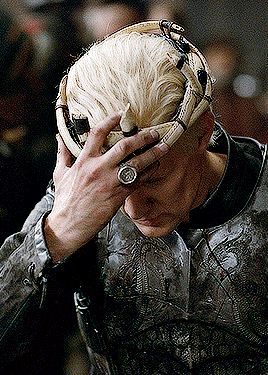

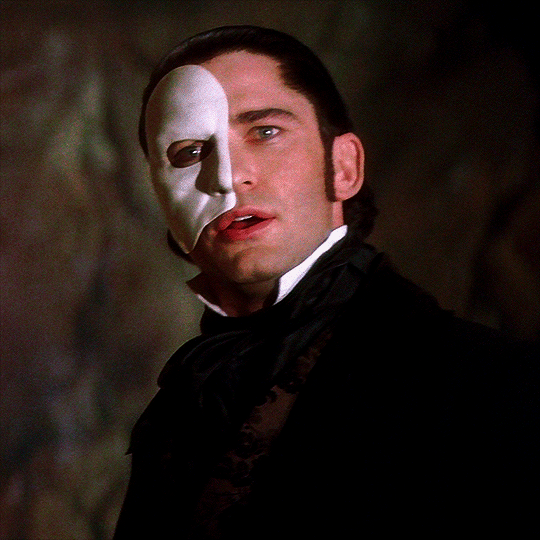



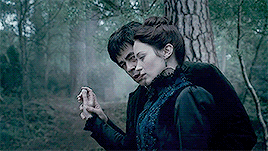






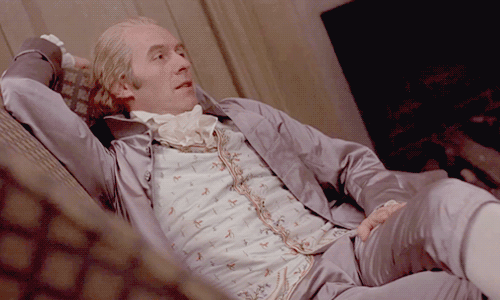



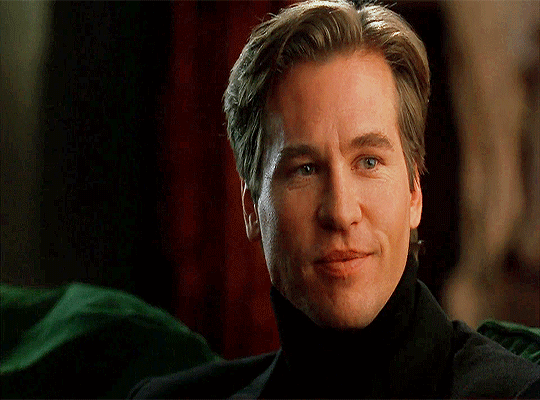

Men.
insolent, desperate, soft, haggard, charismatic, enigmatic MEN.
#graham dalton#sex lies and videotape#james spader#bruce wayne#val kilmer#batman forever#thomas jefferson#john adams hbo#stephen dillane#arminius#barbaren#lawrence rupp#francesco de pazzi#medici the magnificent#matteo martari#ben solo#star wars tlj#adam driver#edward fairfax rochester#jane eyre 2011#michael fassbender#paul atreides#dune 2021#timothée chalamet#lawrence talbot#the wolfman 2010#benicio del toro#the batman 2022#robert pattinson#battinson
388 notes
·
View notes
Text
The Mansfield House Yearbook: Volume IX
Alexander and Theophilus - well, mostly Alexander - have decided to throw a party, to celebrate their recent engagement, and have invited their nearest and dearest, including Frederica, who's getting her first taste of uni life.

Unfortunately, the guests aren't behaving themselves with any decorum. The very-married Eleanor and the recently-engaged Hester can't resist a smooch, for old-times' sake. And the family feud between Jasper and Bennet is unabated. It's such a shame, as they were so close as children, but Jasper can't contain his disappointment that his brother is still toying with Sophia behind Thomas's back.

Good-hearted Alexander can't bear for his brothers to be at odds, and just wishes they could put their differences behind them.
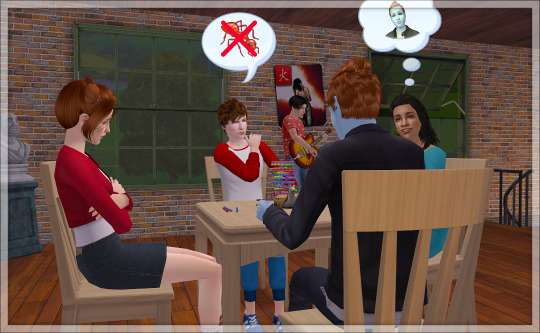
He really wants everyone to just be friends. Maybe a light-hearted game of Don't Wake the Llama will do the trick?

That's better!

Meanwhile, Edward treats them to a display of his guitar-playing expertise. Knowing that his cousin Jasper is a maestro on the instrument is a little intimidating.

But wow! He approves, and it means the world to Edward.

The evening finally ended well, but the next morning, things are not looking so bright. Nathaniel doesn't seem to have got the memo that Alexander is engaged now, and hazards a flirt with his crush.

Although initially taken off-guard, Alexander soon sets him straight. (Actually, it seems that Nathaniel had more than a crush going on.)

But Theophilus is a sensitive soul, and takes the misunderstanding very hard indeed.

An apology just isn't enough, no matter how earnest it might be.

Theophilus needs some space, and throws himself into his term paper, by way of distraction.

Alexander uses the time to offer some fashion tips to Llama Guy.

But with his term paper completed in one marathon session, Theophilus is in urgent need of some fun, and Alexander manages to convince him that their favourite game is just the thing. Maybe it will work its conciliatory magic once again?
#sims 2#gameplay#merybury#de bourgh university#alexander tilney#theophilus bertram#frederica wentworth#eleanor tilney#hester fairfax#jasper tilney#bennet tilney#sophia wentworth#thomas bertram#edward crawford#nathaniel newman#llama guy#mansfield house
11 notes
·
View notes
Note
Hey! quick question on the founding fathers affair post
I hadn't ever heard of affairs by Washington, Adams, and Madison (unless you're talking about the potential existence of the other Madisons descended from Coreen). I know these three are alleged, but would you be able to point to any additional info about this?
Not arguing :)
just want to explore this further
Oh of course!
Yes, the alleged Madison one is about the other Madisons!
Washington and Adams would be considered scandalous in the 18th-century but not so much by today's standards.
Washington was in love with his friend's wife, Sally Fairfax, and sent her letters confessing. There is a lot unknown about their relationship, however. Here is a little article I found on it!
Adams is also a question. They may have had premarital sex (*gasp*...scandalous). Their daughter Nabby was born 8 AND A HALF months after their marriage. Letters and diary entries from before their marriage contain stuff. My source for this is The First Family by Joseph J. Ellis. They're very wholesome :). Thank you John for not burning your letters like SOME people *looks at Thomas Jefferson because I'm sure there was much more scandalous writing there.*
I hope that helps! Happy researching! :D
#amrev#asks#james madison#the other madisons#george washington#sally fairfax#john adams#abigail adams#thomas jefferson
26 notes
·
View notes
Text

Hot Bologna, Cole Slaw and Pickle served on a Coffee Table.
16 notes
·
View notes
Note
Um ok where to begin- Thomas Fairfax was a slave owner, slave trader, sex trafficer, rapist (literally raped his slaves, and called the women he raped “wenches”). Also I’m sorry I’m coming across as a bitch but it’s hard not to become a little hostile talking about something as appalling as this.
ahh i see what has happened. you are talking about the 6th lord fairfax, who was a slave owner in colonial america:

whereas i am talking about the 3rd lord fairfax, who was commander-in-chief of the parliamentary forces during the english civil war:
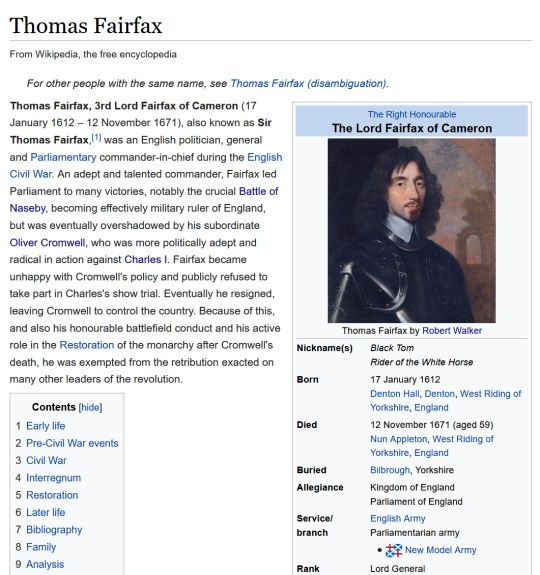
as you can see there is almost a century between them. i believe the 6th lord was the 3rd lord's first cousin once removed, or something along those lines. we are definitely in agreement that the 6th lord was a nasty piece of work though, i don't know much about him but what i have read makes me want to keep it that way!
#also i know it's an easy mistake to make and that you were understandably angry but if you are going to message someone like that i think#you owe it to the person to double-check that what you are saying is true#i guessed that this was what was going on (there are a lot of thomas lord fairfaxes after all and the 6th lord is probably better known#in some circles if only for fairfax county virginia) but it is still not pleasant to receive asks like that#i hope that reassures you though! very much different fairfaxes :-)#asks#rape mention
26 notes
·
View notes
Text
I’ve been rewatching Human Resources


#does this show even have a fandom-#human resources#human resources netflix#Emmy Fairfax#Rochelle Hillhurst#Walter Las Palmas#Pete Doheny#Maury Beverly#Connie LaCienega#petra the ambition gremlin#Tito Thomas#cat stevens human resources#my art#fanart
14 notes
·
View notes
Text
Today has been such a Cromwell n Fairfax day for me ever since that dream...
The restaurant I went to for lunch had a screen where we could see people's orders and there was someone w/the surname Cromwell and there was also someone named Mary omg Moll is that u
I could think of literally nothing else but Ollie and Tom while I was tutoring some kids and when they wifi was being buggy and they had to restart I scrolled the oliver cromwell tags
and I kept doing so until I went to church for a youth gathering and while we were reading the Book of Revelation I had one of my own and it was very unholy. Basically, in a most definitely alternate universe despite it being the same world and timeline as ours what if Cromwell and Fairfax were really gay and Cromwell had so much religious guilt over it and that's why he acted so puritan (outwardly) and imposed those harsh rules on England. Which makes no sense(?) so um
uh
bye now omw to a mental hospital 🥰
#oliver cromwell#thomas fairfax#picked the worst time to have that vision LMAO#man they ghosts be haunting me#as they should#now im tempted to write and/or draw something with this...
2 notes
·
View notes
Text

legend
46 notes
·
View notes
Text
The Contested Commonwealth: ‘Freedom is the man that will turn the world upside down,’
Radical Challenge to the New Regime

Cromwell Suppressing the Mutiny. Source: Alamy Stock Photos
THE KING was dead, but so then was political legitimacy. In some respects, the execution of Charles I and the abolition of the monarchy was a product of Parliamentary frustration and Charles’ own obduracy. There had been no plan or programme on the part of Parliament to suppress royal rule: the motivation of the House of Commons had been to restrict the power of the King, not to destroy it. Charles was not a tyrant but he was unnecessarily inflexible in his determination to implement the Book of Common Prayer and anachronistic in his adherence to absolutism. Unable to understand, let alone control, the nascent democratic forces facing him, the King by his own actions, drove his opponents to the ultimate action of “cruel necessity”.
But if the killing of Charles was unplanned and a result of the logic of renewed war, this did not make the business of replacing the centuries-old English monarchy any more straightforward for the Rump Parliament or the New Model Army. The Rump had declared the establishment of a “Commonwealth” to replace the monarchy as early as 4th January 1649 although in truth, this was chiefly the means by which Parliament could claim an authority by which to execute the King. However the effective destruction of the monarchical regime thereafter was swift: first all pro-Engagement MPs were excluded by statute from the Commons on 1st February, and then on 7th February, the ‘useless and dangerous’ House of Lords was abolished. On 17th-19th March the office of King (and therefore the automatic succession of Prince Charles) was disbanded and then the English monarchy was declared to be no more. With the removal of the Lords and of all pre-existing offices of state, England no longer possessed a government in traditional terms, so a Council of State was formed, with John Bradshaw at its head, and sub-committees formed to administer the armed forces, foreign affairs and Ireland.
Meanwhile Prince Charles and what remained of the Royalist court had gathered in the Dutch town of Breda. The news of his father’s execution understandably caused the prince much personal distress, but also posed a constitutional difficulty for him: if the Commonwealth had indeed abolished the monarchy what status did Charles now have? Luckily for the royal exile, there were parts of his father’s realms that did not accept the regicide. In Scotland, the Parliament in Edinburgh crowned the prince as King Charles II in absentia on 5th February 1649, but made their loyalty contingent on the new king signing the Solemn League and Covenant. In Ireland, James Butler, Earl of Ormrond, still officially Lord Lieutenant of Ireland, maintained his truce with the rebel Catholic Confederates and declared for Charles. This gave the prince two options - either to embrace Ormrond and his Faustian pact with the Irish rebels as his springboard to attempt to claim his throne, or to accept the offer of Scottish support despite this meaning the end of Anglicanism if an assault on the English Commonwealth was successful. Prince Rupert urged linking up with Ormrond despite the price being the extension of religious toleration to Catholics, given that Ormrond’s Irish army was 2,000 strong. However Cromwell’s invasion of Ireland to suppress the rebellion soon put paid to the notion of an Irish alliance to propel Royalism back into contention. The crowned heads of Europe, appalled as they may have been by the execution of the English King, offered no more than warm words to the prince: after all the Thirty Years War had only just concluded. Therefore like his father, Charles was forced to look to Scotland for support, despite the court in exile’s aversion to Presbyterianism.
Royalism in England however was undeniably dead: Preston and the execution of the monarch both demoralised and frightened what remained of the King’s party. With the fall of Pontefract Castle, the last Royalist hold out was gone. In the country at large there was no love for the Rump and little support for the abolition of the monarchy, but the overriding wish of the common people was for peace and stability, and the opportunity to repair the shattered English economy. If the Council of State could bring that about, then most would be willing to at least accept the new regime. Opposition to the Commonwealth came not, therefore, from a revanchist Royalism, but from the Radicals within the former Parliamentary coalition itself. The Levellers remained strong within the New Model Army and were deeply suspicious of the Council of State which, as far as they were concerned, had failed to deliver the Agreement of the People and had simply created a new non-democratic Parliamentary settlement without even the counter-balances of the authority of the Lords and the King. On 26th February John Lilburne put together a further polemic called England’s New Chains Discovered that demanded the abolition of the Rump Parliament and called for new elections based on universal male suffrage. Lilburne’s tract found a ready audience in the Army, who remained disgruntled at the continued absence of wartime pay arrears and at the prospect of having to fight again, this time in Ireland. Lilburne was arrested but made a passionate defence of his principles to a sitting of the Council of State. Cromwell, fearing another Leveller-incited mutiny, saw the danger of “Honest John’s” oratory and urged Bradshaw to ‘break’ Lilburne and his followers ‘or they will break you’.
Leveller discontent swelled as the Council of State began to crack down on their leaders, and Cromwell was asked to lead a 12,000 strong force to Ireland to defeat the Confederates (Fairfax turned the commission down). He proposed selecting regiments by lot and this process provided the pretext for a second Leveller-led mutiny in the Army. On 17th April, two regiments rebelled and refused to serve in Ireland. Although the mutiny was driven primarily by grievances about pay, there was also a stated reluctance to fight the Irish who were seeking their own freedom - an astounding position of political solidarity in extremely sectarian religious times. Cromwell and Fairfax both addressed personally the mutinous troops and succeeded in turning them around, recalling their battles together of old. The following month however, rebellions recurred, possibly provoked by the putting of John Lilburne on trial (he was later acquitted) and efforts were made by mutinous junior officers to consolidate the discontented regiments into a single rebel army based around Bristol.This was Cromwell’s worst nightmare - a return of civil war to England, but this time fought between former comrades of the New Model Army itself.
Cromwell and Fairfax again worked together to defuse the situation. At the head of 4,000 loyal troops the two Grandees marched on Bristol but let it be known they would support the mutineers’ demands to see the end of the Rump Parliament and, crucially, would make good the pay arrears. The commitment to the radical cause therefore began to waver and after a brief night-time skirmish on 13th May between die-hard Levellers and Fairfax’s troops, the rebellion collapsed. The action represented the last military involvement of Fairfax, an increasingly war-weary commander-in-chief. Perhaps this fight against his own soldiers convinced the the general that the time had come to step aside. His last service to the Army he loved was to deliver on his promise to pay the soldiers their arrears in pay. Three Leveller ringleaders were brought to court martial and executed but the majority of the mutineers were pardoned. With the end of the mutiny, significant Leveller influence within the Army dissipated and the group never regained significant political stature.
Further opposition to the Commonwealth was to be found from two utopian groups, the Diggers and the Fifth Monarchists. The Diggers, a millenarian communist group, led by a visionary pamphleteer name George Winstanley, preached common ownership of land and the group established a series of “colonies” at St George’s Hill, Windsor and Cobham, effectively occupying a number of free holdings without their owners’ consent. These colonies were run as agrarian communes, with land and produce held in common, decisions made by democratically elected leaders and a welcome extended to the dispossessed and fugitives from justice. The Diggers were also pacifists and believed in sexual equality. It became easy therefore for local landowners to portray the groups as lawless heretics and sexual deviants and in time the Rump authorised militias to put the Digger collectives down, drive them from the land they had appropriated and cast their agrarian social experiment into oblivion.
The Fifth Monarchists were very different to the Diggers whose religious principles were comparatively lightly worn. The “Fifth Monarchy Men” as they became known, believed that the end of days was at hand, signalled by the execution of the King, and that a fifth realm of latter-day saints was prophesied to take over the world (after the previous monarchies of the Assyrians, the Persians, the Macedonians and the Romans). The Fifth Monarchists believed themselves to be the vanguard of this divinely ordained new order. This belief made them implacable opponents of the Commonwealth, which they viewed as worldly and corrupt and, with the demise of the Levellers, the group developed a strong presence in the Army from whence they became a thorn in Oliver Cromwell’s side.
As for Cromwell himself, with the suppression of the mutinies and the grant of the command to re -conquer Ireland, he now became the pre-eminent political and military leader in the country, eclipsing in influence both the official heads of government and army, Bradshaw and Fairfax. The forthcoming Irish campaign was to cement both Cromwell’s power and his notoriety.
#english civil war#the commonwealth#rump Parliament#oliver cromwell#the levellers#the diggers#Fifth Monarchists#John Lilburne#thomas fairfax
0 notes
Text
It baffles my mind that Clarence Thomas' home address actually begins with 666. That's so on the nose it feels like satire. And not even clever satire, I'm talking really obvious satire, low hanging fruit, the sort of throwaway joke they'd make on SNL or the Daily Show. It's like saying he lives on the corner of Puppy Kicker Lane and Kitten Drowner Drive, 1488 Confederate Avenue apartment KKK in New Hitlerburg. This has to have been a conscious decision. There's no way the most vile human being in government just so happens to live at 6665 Rutledge Drive on accident. He had to have chosen that number on purpose as a sick joke, "haha, yeah, I really am the worst human being, aren't I? Hail satan, fuck you!"
#clarence thomas#666#6665 rutledge drive fairfax station va 22039#public information#satire#cartoonishly evil#monster#inhuman depravity#sick joke#salt in the wound#he's mocking us
7 notes
·
View notes